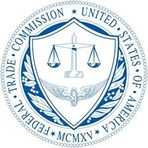Adobe Faces Legal Battle Over Alleged Deceptive Subscription Practices
June 18, 2024, 9:45 pm

Location: United States, District of Columbia, Washington
Employees: 1001-5000
Founded date: 1914
In a legal showdown that has captured the attention of consumers and industry observers alike, the U.S. government has taken decisive action against Adobe, the software powerhouse renowned for its popular products like Photoshop and Acrobat. The Federal Trade Commission has filed a complaint in a San Jose court, leveling serious accusations against Adobe for allegedly engaging in deceptive practices that harm consumers.
At the heart of the matter are hidden termination fees that the FTC claims Adobe has been concealing in its widely-used "annual paid monthly" subscription plan. These fees, which can amount to hundreds of dollars, are allegedly buried in the fine print or obscured behind textboxes and hyperlinks, making it difficult for consumers to fully grasp the financial implications of their subscription commitments.
According to the complaint, Adobe has been calculating early termination fees as 50% of the remaining payments for customers who cancel within their first year of subscription. This practice, the FTC asserts, effectively traps customers into year-long commitments through the imposition of these hidden fees. Moreover, the complaint alleges that Adobe has erected numerous obstacles for subscribers seeking to cancel their subscriptions, whether online or over the phone.
Online cancellations reportedly require users to navigate through a labyrinth of pages, while phone cancellations are fraught with challenges such as disconnections, repetitive interactions with multiple representatives, and resistance and delays from Adobe's customer service personnel. The FTC has singled out two high-ranking Adobe executives, David Wadhwani and Maninder Sawhney, as defendants in the lawsuit, holding them accountable for the company's alleged deceptive practices.
In response to the allegations, Dana Rao, Adobe's general counsel and chief trust officer, has vehemently defended the company's subscription services, emphasizing their convenience, flexibility, and cost-effectiveness. Rao asserts that Adobe is transparent in its communication of subscription terms and conditions, and maintains a straightforward cancellation process for subscribers.
The significance of subscription services for Adobe's financial health is underscored by the fact that subscriptions accounted for a staggering 95% of the company's revenue in the last quarter, totaling $4.92 billion out of $5.18 billion. The FTC has accused Adobe of violating the Restore Online Shoppers' Confidence Act, a federal law enacted in 2010 to protect consumers from unfair practices related to online subscriptions.
The lawsuit seeks not only civil penalties but also an injunction against further deceptive practices by Adobe, signaling a potential turning point in the company's relationship with its customers and regulators. As the legal battle unfolds, all eyes are on Adobe to see how it will respond to the allegations and whether it will take steps to address the concerns raised by the FTC. The outcome of this legal saga could have far-reaching implications for Adobe and the broader software industry, underscoring the importance of transparency and consumer protection in the digital age.
At the heart of the matter are hidden termination fees that the FTC claims Adobe has been concealing in its widely-used "annual paid monthly" subscription plan. These fees, which can amount to hundreds of dollars, are allegedly buried in the fine print or obscured behind textboxes and hyperlinks, making it difficult for consumers to fully grasp the financial implications of their subscription commitments.
According to the complaint, Adobe has been calculating early termination fees as 50% of the remaining payments for customers who cancel within their first year of subscription. This practice, the FTC asserts, effectively traps customers into year-long commitments through the imposition of these hidden fees. Moreover, the complaint alleges that Adobe has erected numerous obstacles for subscribers seeking to cancel their subscriptions, whether online or over the phone.
Online cancellations reportedly require users to navigate through a labyrinth of pages, while phone cancellations are fraught with challenges such as disconnections, repetitive interactions with multiple representatives, and resistance and delays from Adobe's customer service personnel. The FTC has singled out two high-ranking Adobe executives, David Wadhwani and Maninder Sawhney, as defendants in the lawsuit, holding them accountable for the company's alleged deceptive practices.
In response to the allegations, Dana Rao, Adobe's general counsel and chief trust officer, has vehemently defended the company's subscription services, emphasizing their convenience, flexibility, and cost-effectiveness. Rao asserts that Adobe is transparent in its communication of subscription terms and conditions, and maintains a straightforward cancellation process for subscribers.
The significance of subscription services for Adobe's financial health is underscored by the fact that subscriptions accounted for a staggering 95% of the company's revenue in the last quarter, totaling $4.92 billion out of $5.18 billion. The FTC has accused Adobe of violating the Restore Online Shoppers' Confidence Act, a federal law enacted in 2010 to protect consumers from unfair practices related to online subscriptions.
The lawsuit seeks not only civil penalties but also an injunction against further deceptive practices by Adobe, signaling a potential turning point in the company's relationship with its customers and regulators. As the legal battle unfolds, all eyes are on Adobe to see how it will respond to the allegations and whether it will take steps to address the concerns raised by the FTC. The outcome of this legal saga could have far-reaching implications for Adobe and the broader software industry, underscoring the importance of transparency and consumer protection in the digital age.
